Last year, Xiaomi’s Mi 11 (Review) smartphone was easily one of the best (and also our favorite) smartphone in the sub-S$1,000 segment that offers plenty of remarkable features unseen in other devices of the same price range, or perhaps even those that cost a fraction more than the phone.
It’s therefore unsurprising that the Xiaomi 11 had found success in most of the Asian markets where the company is getting increasingly known for it’s high-end models despite starting off as a brand that focuses on budget smartphones that bring great value for money.
Launched earlier this month, the new Xiaomi 12 Pro is the company’s latest attempt to further expand it’s presence in the premium segment which was traditionally dominated by the likes of Apple and Samsung flagship models.
After spending more than two weeks with the Xiaomi 12 Pro, it’s safe to say that the device is once again a worthy contender for the title of ”flagship killer” for at least the first-halve of the year. To find out why, read on our full review of the Xiaomi 12 Pro 5G!
Design
On the outside, the Xiaomi 12 Pro is a stylish-looking smartphone especially with it’s gorgeous quad-curve design on both the front and rear side of the phone which somehow makes the phone looks and feels slimmer than it’s actual thickness.
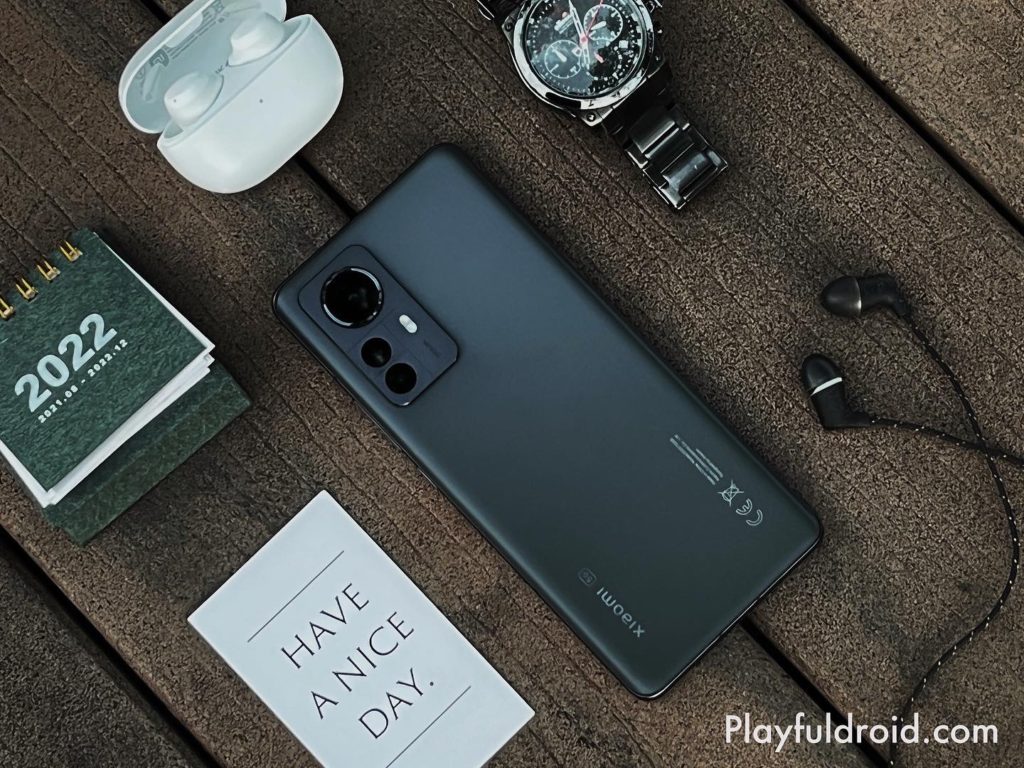
This time round, Xiaomi has ditched the rounded square camera design of last year’s Mi 11 for a more convectional-looking rectangular module which features a matching color with the rest of it’s rear panel.
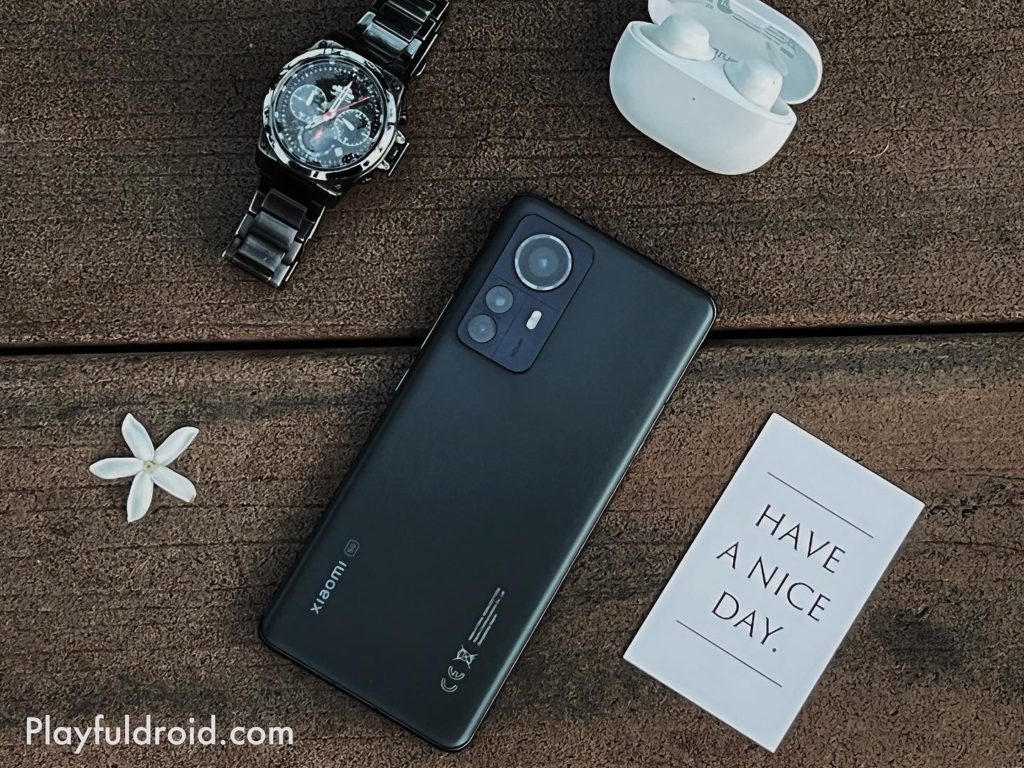
While the phone isn’t exactly a small or compact smartphone like the vanilla Xiaomi 12, but it’s tall and slim design nonetheless makes the phone easy to use with one hand whenever the situation calls for it. Likewise, it also feels premium on hand thanks to the adoption of an expensive glass back and aluminium frames.
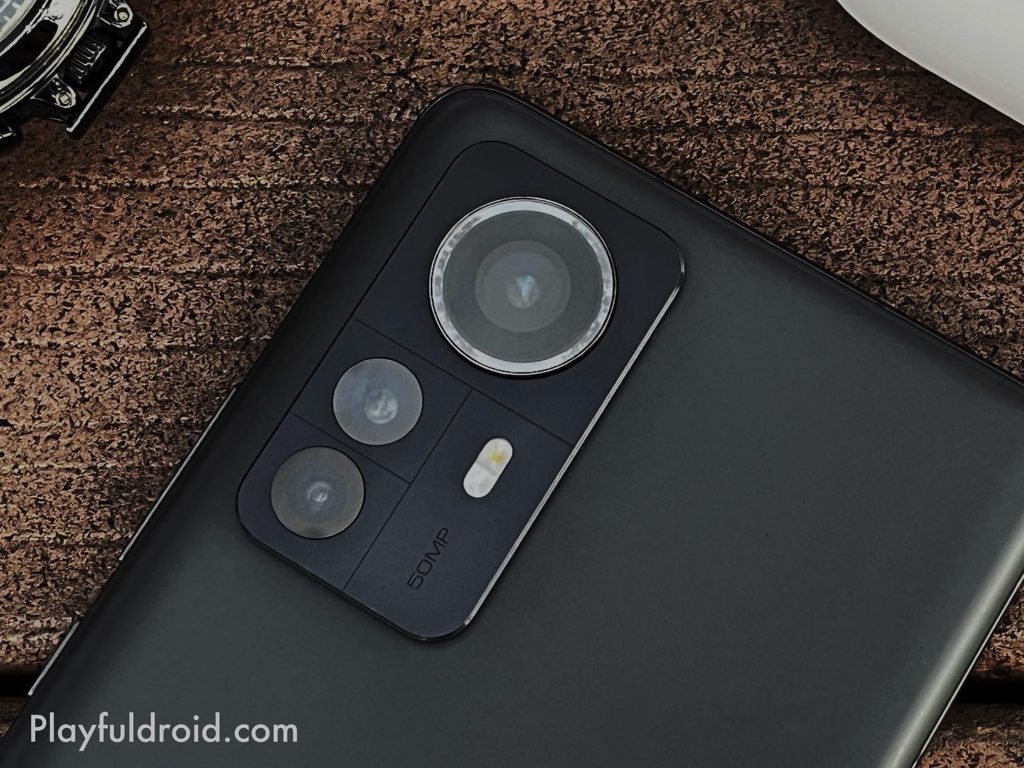
For the Gray variant that I received for review, it is perhaps the most understated color among the three available colors which also include the more flashy Blue and Purple colorways that are constantly yearning for attention.
Although it’s undeniable that the Xiaomi 12 Pro looks fancy in both Blue and Purple colorways, but I find myself a bigger fan of the (Matte) Gray version which gives the phone a really classy appearance on the outside – just like the Midnight Gray Mi 11 which I really love.
Contrary to most other devices that comes with a glossy back, the Matte-like surface of the Xiaomi 12 Pro’s rear panel also does a fantastic job in keeping those unsightly fingerprints and smudges to the bay.
Display
Coming to the front side of the phone, the Xiaomi 12 Pro builds around a spacious 6.73” curve display which offers plenty of screen estate for both entertainment and productivity. To help with selfies and video calls, it features a minuscule centered hole-punch which houses an impressive 32 megapixels front-facing camera.
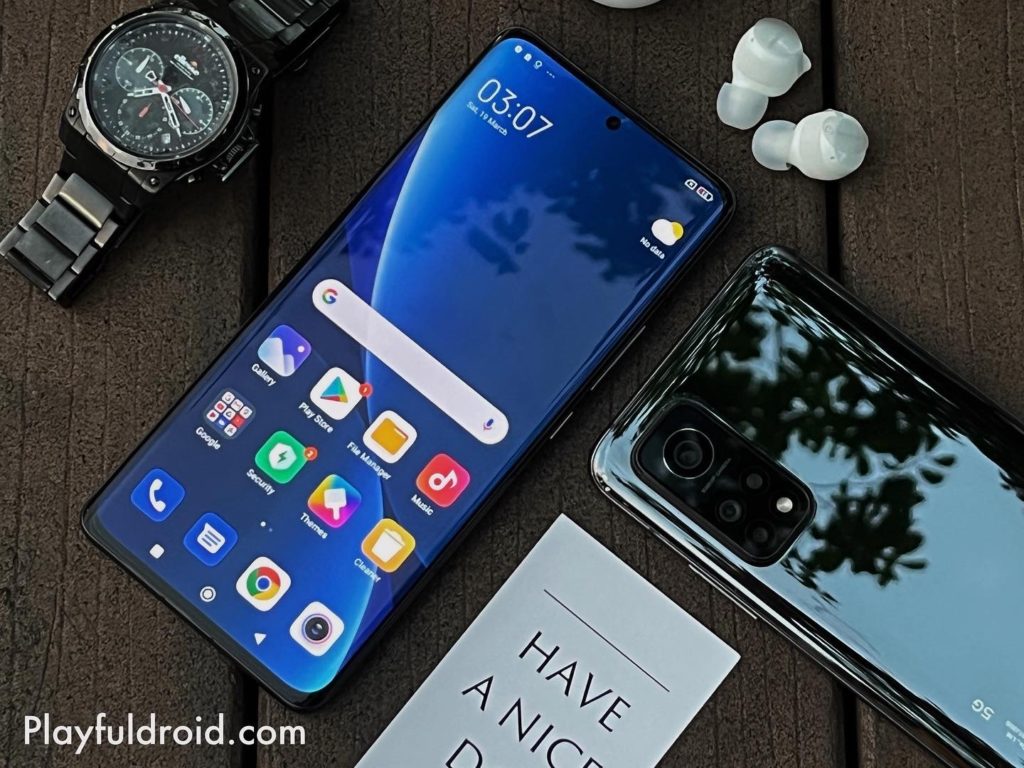
Speaking about the display itself, it’s a high-end LTPO AMOLED panel which supports a super sharp QHD+ screen resolution that brings plenty of details to the screen especially when you’re viewing high resolution photos or watching high definition videos on the phone.
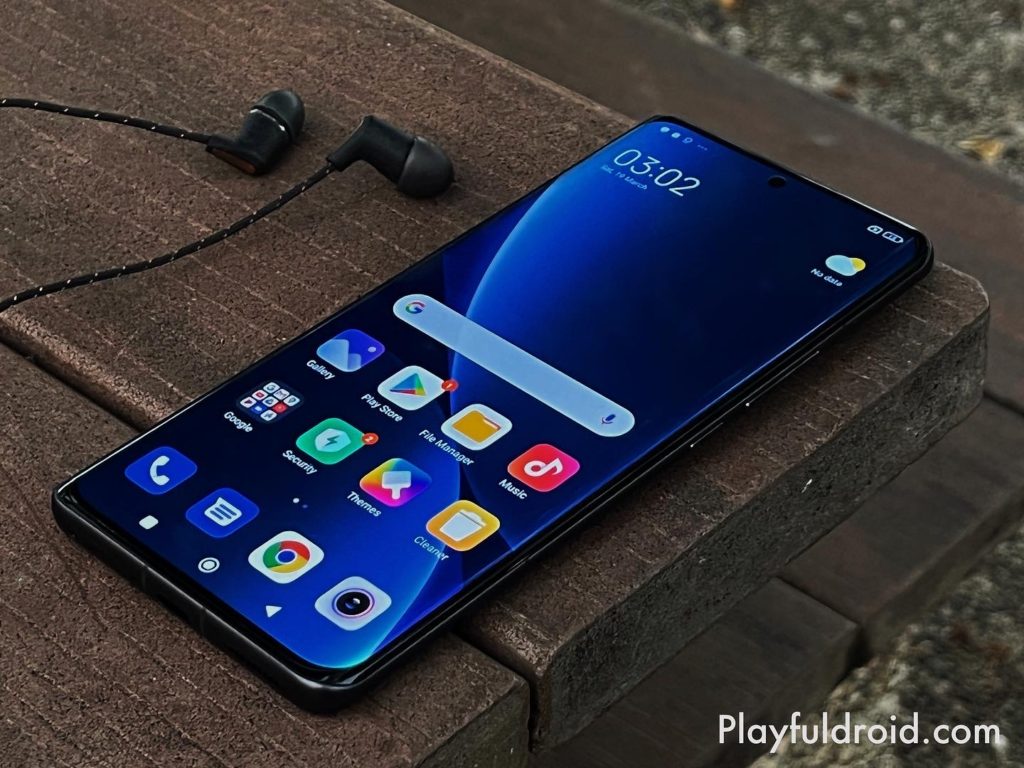
Like any other high-end devices, it also comes with other standout features such as buttery-smooth 120Hz refresh rate, 10-bit color depth, as well as HDR10+ support for a smooth and realistic viewing experience when streaming your favorite Netflix contents.
Along with a peak brightness of up to 1,500 nits, the front display has absolutely no issue getting sufficiently bright when using the phone in an outdoor environment with strong ambient light.
This is in fact an important feature for those who love to do outdoor photography since having a display with insufficient brightness would cause the onscreen viewfinder to appear washed out due to reflection of the sunlight.
Performance
Sitting at the heart of the phone is the latest Snapdragon 8 Gen 1 chipset which was also found in other recent flagship models like the Samsung Galaxy S22 Ultra and OPPO Find X5 Pro to name a few.
Therefore, it wasn’t surprising at all that the Xiaomi 12 Pro handles most of the resource-intensive apps or tasks with ease, offering a fluid entertainment and multi-tasking experience for it’s users.
This of course include graphics demanding, real-time game titles such as Asphalt 9 Legend and COD Mobile which I hardly experience any tinge of lag even after several hours of game play.
While the phone admittedly gets a bit warm at times, but it’s pretty much manageable most of the time, and will probably went unnoticed when you’re fully engrossed in your gameplay.
In fact, it isn’t something extraordinary for a high-end model like Xiaomi 12 Pro to get slightly warm at times when running at peak performance since we did experience the same on other devices as well. Perhaps what’s most important is that the phone doesn’t gets too ”hot” such that it throttles.
Glad to say, that’s something I didn’t experience on the Xiaomi 12 Pro thanks to it’s advance cooling system which include an ultra-thin 2900mm² large vapor chamber along with three layers of massive graphite sheet to effectively reduce the core temperature.
On the memory side of things, the Xiaomi 12 Pro also features 12GB RAM and 256GB built-in storage which are based on the latest LPDDR5 RAM and UFS 3.1 storage technologies respectively. Such ample setup is certainly more than sufficient for most users, including those who relies the phone heavily on multi-tasking.
Cameras
Just like last year’s Mi 11, Xiaomi emphasize heavily on the imaging capability of the new Xiaomi 12 Pro which now features a revamped triple-cam array lead by a trio of 50 megapixels cameras that include a main camera, ultra-wide camera, as well as a telephoto unit.
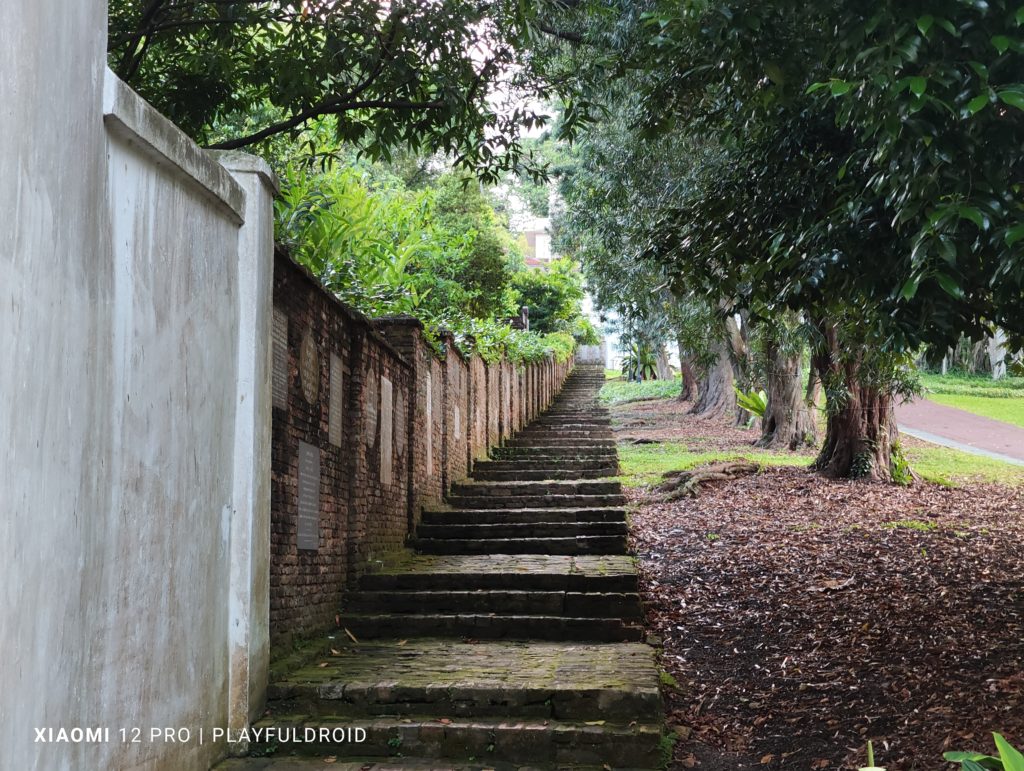


To be honest, photos taken by it’s main camera (which uses a Sony IMX707 imaging sensor) is among the best I’d seen this year regardless of lighting conditions, owing to it’s excellent dynamic range and accurate white balance which allows the camera to capture photos that looks flattering and realistic.
Most importantly, details were also ample due to the adoption of a large 1/1.28” imaging sensor which is capable of retaining even the finest texture details on a faraway subject if you actually do pixel peeking on the photos.
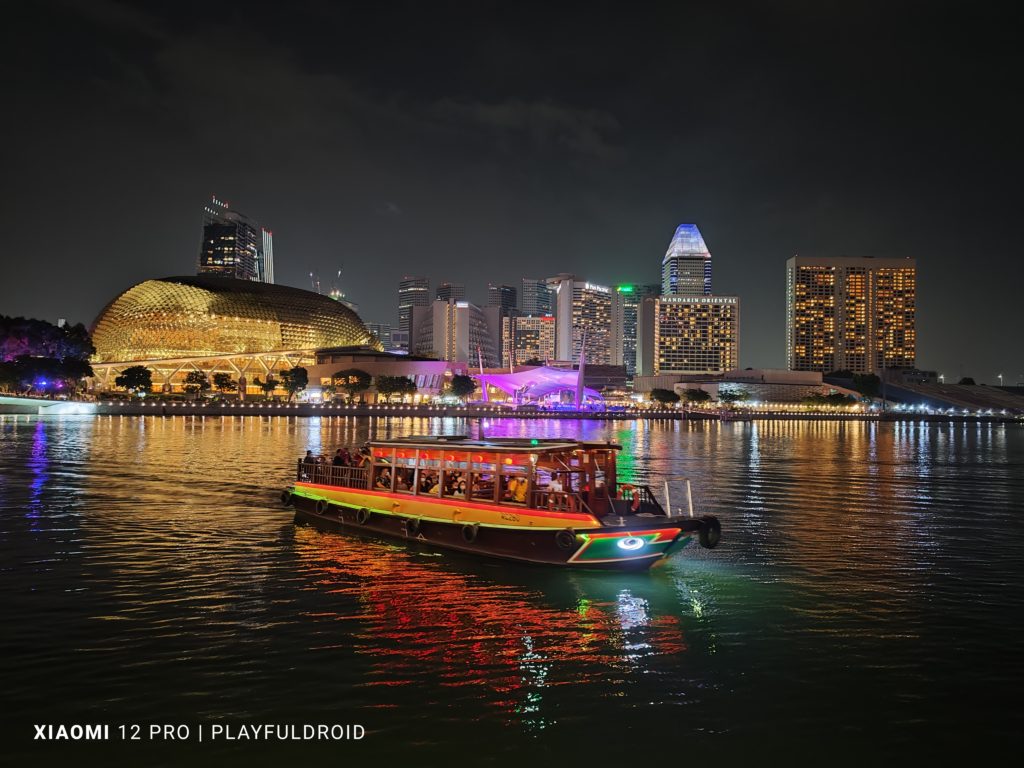
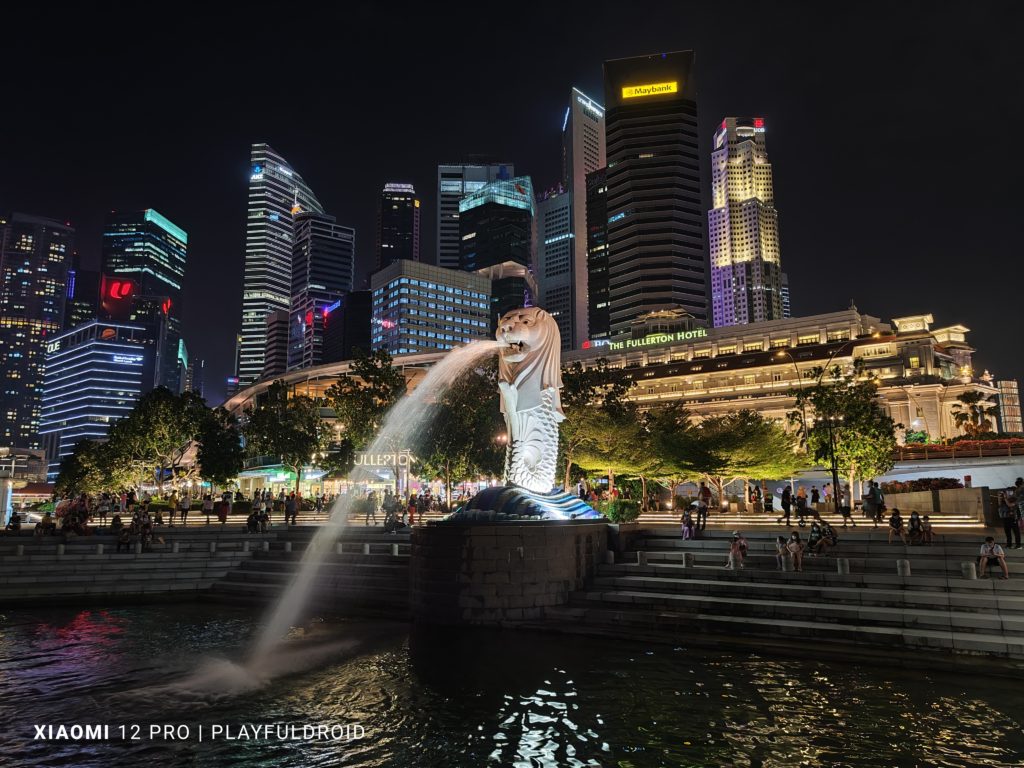
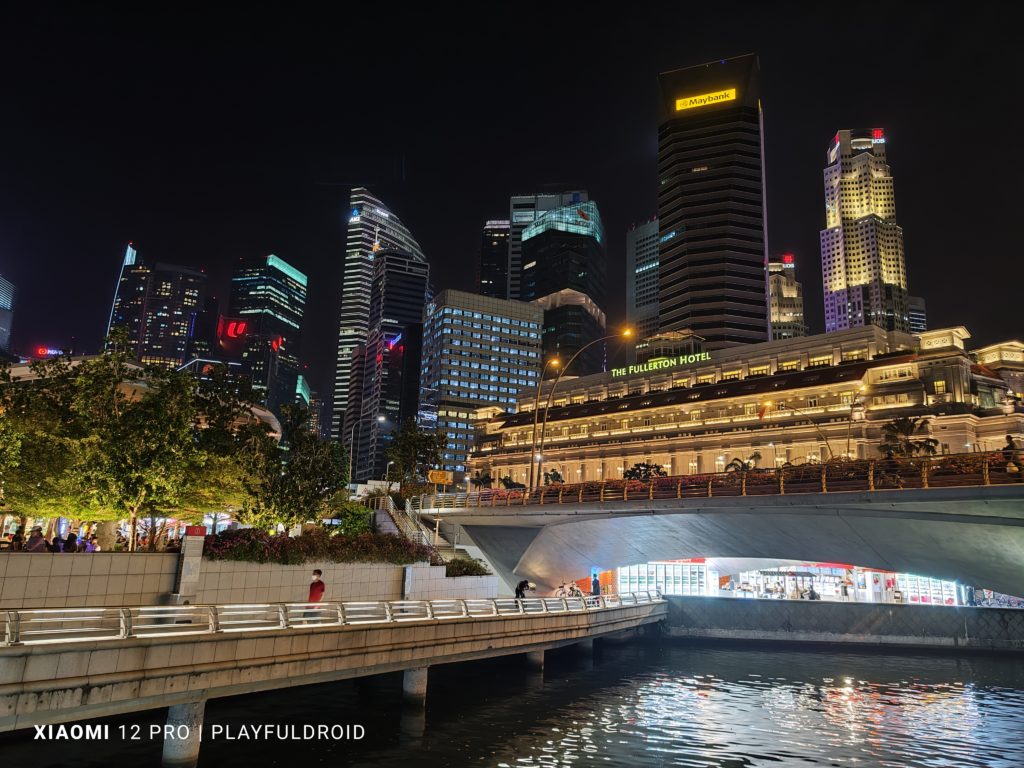
For low-light photography, the Xiaomi 12 Pro has a really capable night mode feature which works like a charm in improving the overall exposure of photos. This not only makes them look brighter and delightful, but also enhances shadow details within the photos.

While there’s no doubt that the Xiaomi 12 Pro has a really promising main camera, you might actually be surprised that it’s ultra-wide unit is equally impressive even though it employs a different 50MP imaging sensor from the standard lens.
As such, you’ll still be able to click some Insta-worthy photos of various landscape with vibrant colors and decent amount of details. Likewise, the camera also does a remarkable job in eliminating those unsightly “fisheye” effect which we normally see in photos taken by an ultra-wide camera.
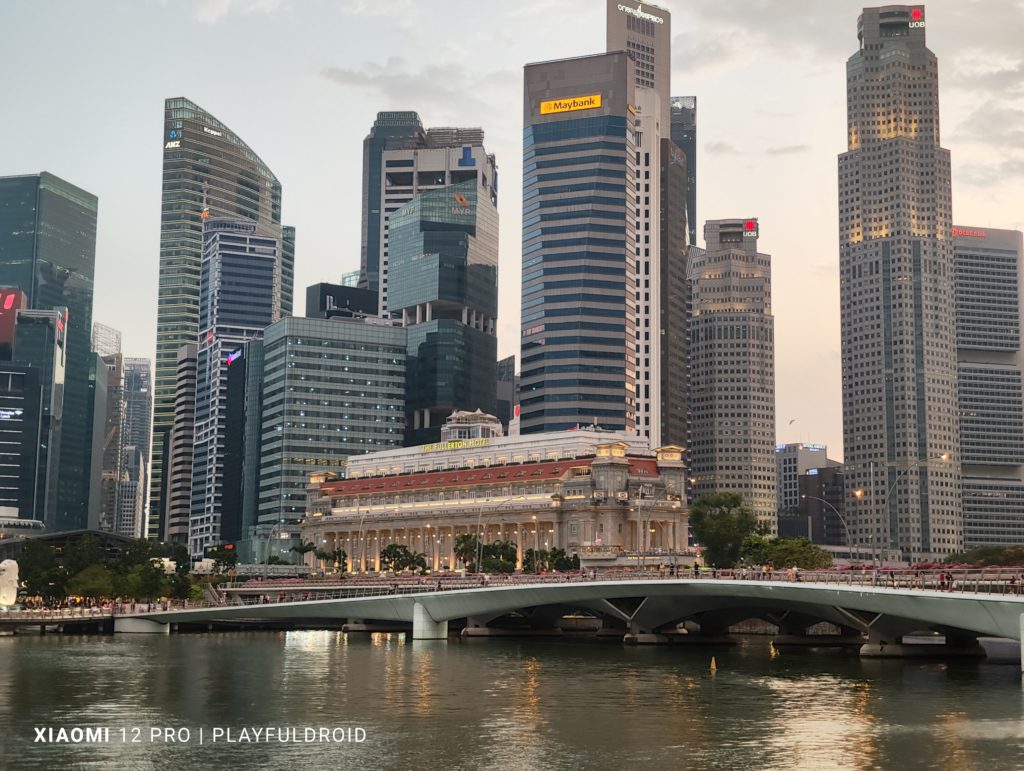
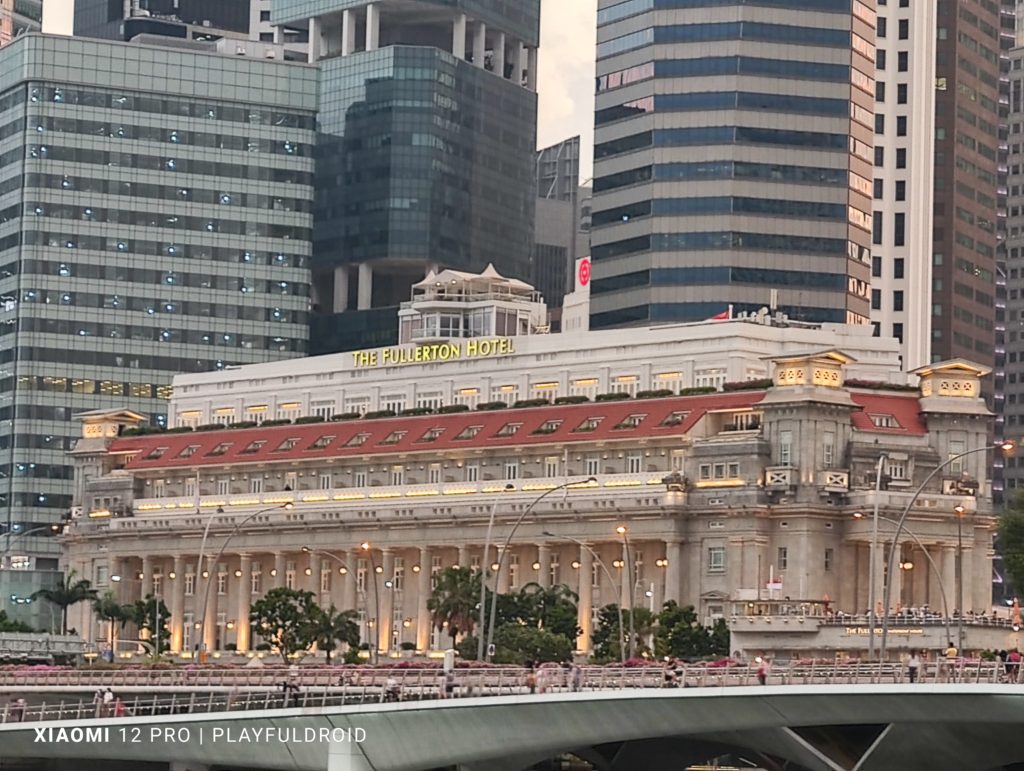

To round out it’s rear camera package, there’s also a 50MP telephoto camera to help with snapping photos of faraway subjects. Although it might not be able to zoom as far as the Huawei P50 Pro (Review), but it does output some pretty good photos between the 2x to 5x zoom factor.
In fact, it’s commendable that the photos didn’t appear overly grainy or blur even at 10x zoom. Instead, we’re able to get some fairly usable photos with acceptably good level of details and dynamic range.
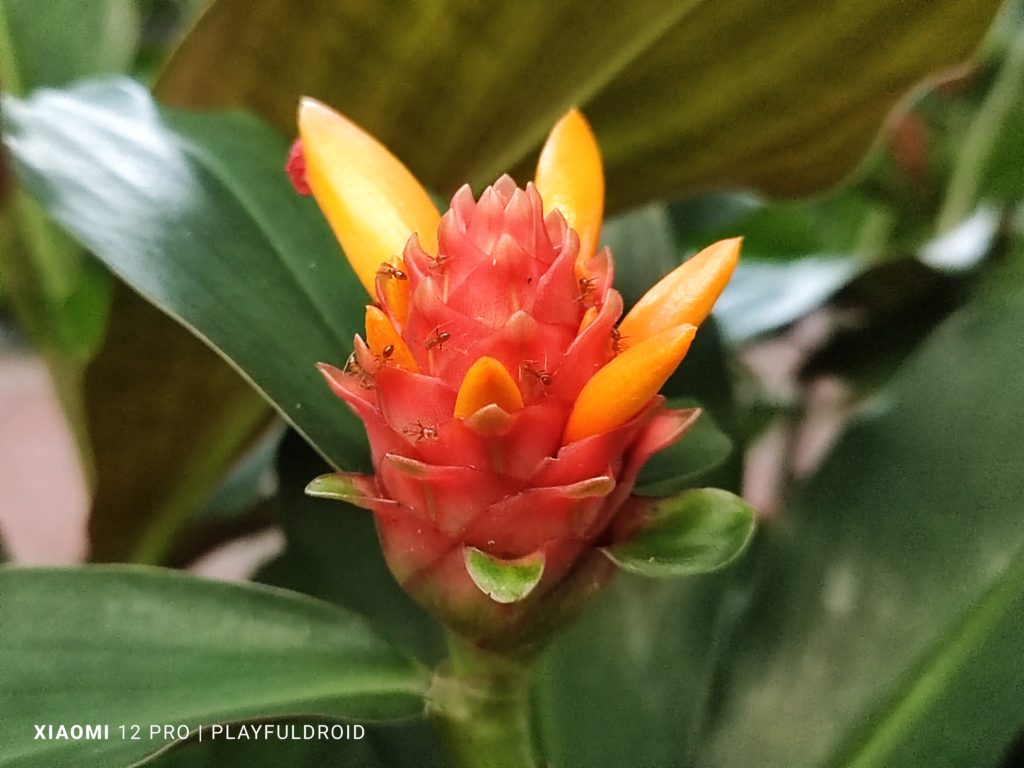
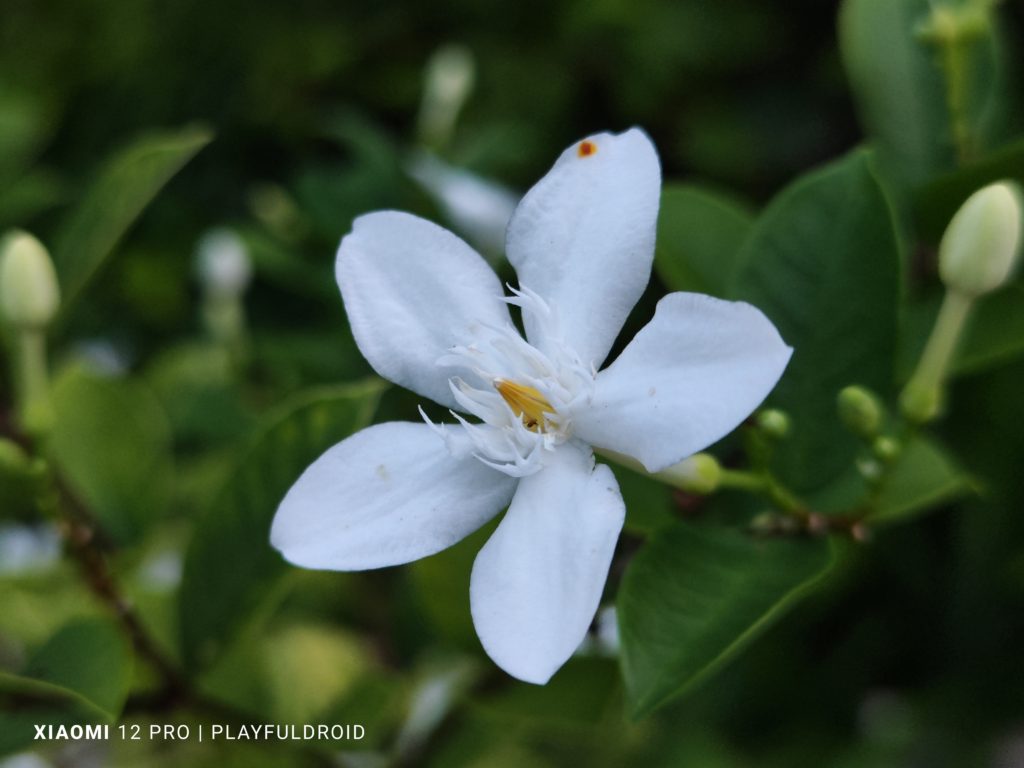
While most users tend to use this camera for subjects at a distance, I find myself using it more frequently on close-up photos of flora and fauna due to the exceptional photo quality produced with 2x optical zoom.
Also, it’s extremely easy to keep the subject well-focused since the main camera has a really reliable auto-focus system which focuses really quickly and accurately.
Battery & Charing Speed
To keep it’s lights on, the Xiaomi 12 Pro is backed the same 4,600mAh battery as last year’s Xiaomi Mi 11. Under normal usage, the phone never fails to provide me with an average of 1.5 days’ battery life on a single charge with battery saver on.
Even on days when I use the phone more heavily, the battery capacity still stood comfortably above the 15% mark by the end of the day. That’s how enduring the Xiaomi 12 Pro’s battery life actually is. Of course, if you choose to turn off the battery saver mode and dial up it’s brightness and refresh rate, you’ll definitely experience a more rapid drain in battery life.
To sweeten up the deal, the Xiaomi 12 Pro also features a class-leading 120W fast-charging support which is among the fastest in the market. Using the bundled 120W charging adapter, the phone is able to recharge from a completely flat battery from 0 to 100% in merely 20 minutes.
As for those who wish to charge the phone wirelessly, it’s good to know that the phone also supports up to 50W wireless charging. Although it’s comparatively slower than the wired charging solution, but it’s still able to deliver a full charge in just slightly more than 40 minutes.
Verdict
The Xiaomi 12 Pro might not be an expensive phone like other flagship models such as the iPhone 13 Pro (Review) or the new Samsung Galaxy S22 Ultra that revolve around the $2,000 mark. Despite that, the Xiaomi 12 Pro does has the calibre to stand toe to toe with these models across the board.
From it’s top-grade display to it’s photography prowess and blazing-fast charging speed, the Xiaomi 12 Pro is nothing short of amazing especially when you take into account of it’s amicable pricing.
Other than perhaps the lack of IP rating, which wouldn’t a deal breaker considering that the phone can survive a light drizzle or shallow submersion over a short period of time, there’s nothing else we can possibly nitpick about the device.
With that in mind, the Xiaomi 12 Pro is certainly one of the top options to consider for those looking to enjoy a flagship mobile experience without burning a hole in their pockets.
Availability & Pricing
In Singapore, the Xiaomi 12 Pro 5G is already available for purchase at just $1,349 via all Xiaomi Authorized Stores, Selected Partners’ and Telcos’ Stores, as well as on Lazada and Shopee